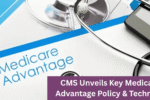In today’s media-saturated world, the pharmaceutical industry invests billions in advertising to sway public opinion and health decisions. From TV commercials to social media campaigns, these adverts often paint prescription medications as the quick fix for every ailment. However, this marketing blitz can overshadow the fundamental truth that lasting health depends on lifestyle habits, not just popping a pill.
Many people, especially younger generations, are growing increasingly skeptical of Big Pharma’s motives and are turning toward holistic approaches that emphasize diet, exercise, and mental well-being. Understanding how pharmaceutical ads influence our perceptions is key to making informed choices that prioritize wellness over quick pharmaceutical solutions.
The Scale of the Pharmaceutical Advertising Industry
The pharmaceutical sector is one of the largest spenders on advertising, dedicating substantial amounts annually to promote prescription drugs directly to consumers. These campaigns saturate television, digital platforms, and print media, often targeting chronic conditions like mental health, heart disease, and diabetes. The sheer volume of ads creates a perception that medications are indispensable for managing health, even for conditions where lifestyle modifications could prove significantly more effective.
| Media Channel | Percentage of Pharma Ad Spending |
|---|---|
| Television | Over Half |
| Digital (Social, Search, Website) | Over a Quarter |
| Print (Magazines, Newspapers) | Around 10 percent |
| Other Channels (Radio, Outdoor) | Remaining Percentage |
How Advertising Shapes Public Perception of Medications
Pharmaceutical ads often focus on benefits while downplaying risks or alternatives, positioning prescriptions as safe and convenient solutions. Powerful imagery and testimonials reinforce emotional connections, encouraging viewers to see medications as heroes in their health journey. These tactics can distort public understanding by prioritizing symptom management over root cause resolution.
The constant exposure to such messaging can cause individuals to overlook the importance of nutrition, physical activity, and mental health care as foundational pillars of wellness. It also normalizes long-term use of medications, sometimes without fully exploring healthier lifestyle changes first.
The Lifestyle Approach to True Health and Wellness
True health stems from a combination of balanced nutrition, regular exercise, quality sleep, stress management, and social connections—elements that work synergistically to optimize body and mind. For example, habits like a diet rich in whole foods, daily physical movement, and mindfulness practices address many chronic conditions at their core, often preventing or reducing the need for medications over time.
Embracing this approach empowers people to take ownership of their health instead of relying solely on prescriptions. It encourages prevention, resilience, and long-term quality of life rather than quick symptom relief.
Common Chronic Conditions Better Managed by Lifestyle Changes
| Condition | Typical Prescribed Medications | Effective Lifestyle Changes |
|---|---|---|
| Type 2 Diabetes | Metformin, Insulin | Low-sugar diet, regular exercise, weight management |
| Hypertension | Beta-blockers, ACE inhibitors | Sodium reduction, stress management, cardio workouts |
| Depression | Antidepressants | Therapy, physical activity, social support, mindfulness |
| High Cholesterol | Statins | Healthy fats, fiber-rich foods, aerobic exercise |
The Risks of Over-Reliance on Prescription Medications
While prescription drugs can be life-saving, over-dependence raises concerns such as side effects, drug interactions, and the potential for dependency. Additionally, pharmaceutical interventions sometimes address symptoms without treating underlying causes, leading to chronic use without meaningful health improvements.
This can strain healthcare systems and inflate patient expenses. Moreover, it can foster a passive health mindset where individuals expect pharmaceutical solutions rather than actively engaging in better lifestyle choices that promote holistic well-being.
Big Pharma and Public Health: A Complex Relationship
The pharmaceutical industry plays a critical role in developing essential medications; however, its aggressive marketing practices often blur lines between patient care and profit motives. Transparency and regulation are necessary to ensure advertising does not exploit vulnerabilities or mislead consumers into viewing medications as the only path to health.
Critics argue for increased public education on non-pharmaceutical interventions, better support for lifestyle medicine, and improved physician-patient communication to balance medication use with preventative strategies.
How Young Adults Can Take Control of Their Health Amid Advertising Noise
Today’s younger generations are uniquely positioned to challenge traditional healthcare narratives due to widespread access to information and wellness trends. By critically evaluating advertising messages and prioritizing evidence-based lifestyle practices, young adults can embrace proactive health management.
Practices such as meal prepping, regular workouts, mental health awareness, and reducing screen time empower them to build sustainable habits that reduce susceptibility to chronic diseases and the resulting medication dependency.
Practical Tips for Reducing Medication Reliance Through Lifestyle
- Incorporate a balanced diet rich in fruits, vegetables, whole grains, and lean proteins to support metabolic health.
- Engage in regular aerobic and strength-training exercises to improve cardiovascular and musculoskeletal health.
- Practice stress-reduction techniques such as meditation, yoga, or deep breathing.
- Maintain a consistent sleep schedule to enhance recovery and immune function.
- Build strong social connections to foster emotional resilience.
- Consult healthcare providers about lifestyle modifications before starting or discontinuing medications.
The Role of Healthcare Providers in Guiding Balanced Treatment
Health professionals should integrate lifestyle counseling alongside pharmacological treatments, presenting medications as part of a comprehensive strategy rather than a standalone solution. Encouraging patients to adopt healthy habits empowers them to achieve improved outcomes and potentially reduce their dependence on drugs.
Collaborative decision-making and patient education can rebalance the health narrative, shifting focus from reactionary medication use to proactive, preventive care rooted in lifestyle.
Conclusion: Prioritizing Lifestyle for Sustainable Health Beyond Big Pharma’s Influence
While medications remain vital for many patients, the overwhelming presence of pharmaceutical advertising risks promoting a narrow, medication-centric view of health. True wellness requires a holistic approach that emphasizes lifestyle changes addressing the origins of chronic illness and supporting overall vitality.
By recognizing the influence of Big Pharma’s ad blitz and choosing to invest in nutrition, exercise, sleep, and mental well-being, individuals—especially younger generations—can reclaim control over their health. This paradigm shift holds promise for fostering long-term resilience and reducing unnecessary pharmaceutical dependency.




